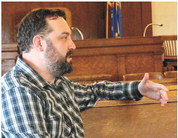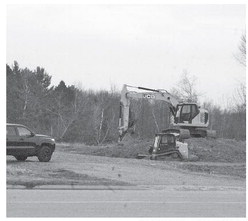Illinois, Michigan combine for more than $600 million in revenue from marijuana
Illinois has collected more than $400 million in tax revenue from recreational marijuana sales in 2021, and Michigan has collected about $200 million.
Wisconsin still bans the drug in most forms, but the legislature continues to flirt with legalizing medical marijuana.
In the two years since launching its recreational marijuana program, Illinois has received more than half a billion dollars in tax revenue, according to the Illinois Department of Revenue.
Over $100 million of that will finance programs aimed at investing in communities hardest hit by the drug war, with a large chunk going to fund grants for minority communities disproportionately impacted by gun injuries, child poverty, unemployment and incarceration, the state says. About $100 million was deposited into Illinois’ general fund.
Funds from cannabis revenue will also go to local governments, a marijuana regulation fund, facilitating the process of expunging criminal marijuana charges, administrative costs, a public health campaign and research on the effects of legalization.
Recreational marijuana tax revenue is a “found money” resource, where one previously didn’t exist, by Douglas Berman, a law professor at Ohio State University and the director of the Drug Enforcement and Policy Center there.
“If the money is used well, it can do a lot of good,” Berman said. “It’s not going to fill every pothole or solve every pension crisis, however it can be wonderful for additional resources.”
Of the more than $200 million gathered in Michigan, $20 million will be given annually to clinical trials researching the efficacy of marijuana in treating veterans’ medical conditions and preventing veteran suicide, according to state documents. Funds will also go to a K-12 school aid fund, repair and maintenance of roads and bridges, and municipalities and counties where marijuana businesses are located.
Under Wisconsin law, marijuana possession is a felony, though the state has legalized products from non-intoxicating cannabidiol, commonly known as CBD, and the growing of hemp.
Marijuana is classified as a Schedule 1 drug both federally and in Wisconsin, meaning the governments officially consider it to have a high potential for abuse, no currently accepted medical use in treatment in the United States and that it lacks accepted safety for use in treatment under medical supervision. Other Schedule 1 drugs at the state level include heroin, MDMA and PCP.
“There’s this widespread sense that the harms expressed at the outset [of legalizing recreational marijuana] may exist a little bit, but they haven’t been as big a deal as you might think,” Berman said.
Marijuana legalization has little effect on the crime rate in either direction, according to an ongoing study by the Cato Institute, a libertarian think tank based in Washington D.C., though it notes the data is still limited. A study from the National Bureau of Economic Research found little to no change in traffic crashes in places where cannabis had been legalized.
Wisconsin state Sen. Melissa Agard (DMadison) has introduced a bill to legalize recreational marijuana in each of the last five legislative sessions. When she first proposed the bill in 2014, it received only five co-sponsors, she said. Her 2021 effort lists 40 co-authors and co-sponsors of the bill, all Democrats. Republicans, who have controlled the legislature since 2011, have ignored the bill in committee, where it must pass before going to a full vote in the state Senate.
The state Senate recently took up a bill that increases penalties for a person who uses a butane torch to extract resin from a cannabis plant. Agard introduced an amendment to the bill that would have legalized marijuana in any form. Republicans killed Agard’s amendment and passed the initial bill on a 21-12 party-line vote.
Agard’s proposals have now failed to pass in each of her five efforts, she noted.
“The fact that Wisconsin is an island of prohibition in the Midwest continues to harm folks in our state,” Agard said. “At a time when economic recovery is at the tip of everyone’s mind, it’s really short-sighted that we are not moving policy forward to welcome a billion-dollar industry that’s knocking on the door.”
Minnesota and Iowa have legalized medicinal marijuana, but do not allow its sale for recreational use.
Wisconsin Gov. Tony Evers included a provision in his last budget proposal that would have legalized recreational marijuana, but Republicans cut the proposal before passing the budget.
Senate Majority Leader Devin Le-Mahieu (R-Oostburg) has said the state should wait for the federal government to legalize medical marijuana before doing so. During a WisPolitics.com luncheon last April, LeMahieu, said if the Food and Drug Administration approves medical use, marijuana should be treated like any other prescription drug.
“If there’s advantages to [marijuana], if it helps out people, I have no problem with it as long as a doctor prescribes it,” he said. When asked for comment, Le-Mahieu said through a spokesman that his position on the topic has not changed since April.
Assembly Speaker Robin Vos (R-Rochester) has said he is open to medical marijuana, though he wants it legalized in a limited way that doesn’t involve “a marijuana shop on every corner.”
“It shouldn’t be smoked. It should be taken in pill form. It shouldn’t even be edible so a child could get at it,” he told News 3 Now in 2019.
Vos did not respond to requests for comment.
Some Republicans support medical marijuana legalization.
Last month, state Sen. Mary Felzkowski (R-Irma) and state Rep. Patrick Snyder (R-Schofield) introduced a bill that would create a new state commission to regulate medical marijuana. Physicians who earn certification from the commission would be allowed to prescribe marijuana.
Felzkowski told reporters at a news conference that LeMahieu is “more than willing” to allow a hearing after a similar bill proposed by her failed to gain any traction in 2021.
“We have a trend in this state to look for more natural types of healthcare,” Felzkowski said in the news conference. “Empower those who look to natural immunity, natural healthcare, and beefing up our bodies holistically instead of just using a prescription type of medication.”
Medical marijuana is very popular in Wisconsin. A 2019 Marquette University Law School poll found 83% of registered voters in Wisconsin backed the idea. A smaller majority — 59% — supported legalizing marijuana recreationally.
Pot shops in Illinois have sold nearly $2 billion in cannabis products in the two years since marijuana became legal there, with sales doubling from 2020 to 2021. Illinois dispensaries generated more than $430 million in sales by out-of-state customers, according to the Illinois Department of Financial and Professional Regulation.
The Badger Project (https://thebadgerproject. org/) is a nonpartisan, citizen-supported journalism nonprofit in Wisconsin.




